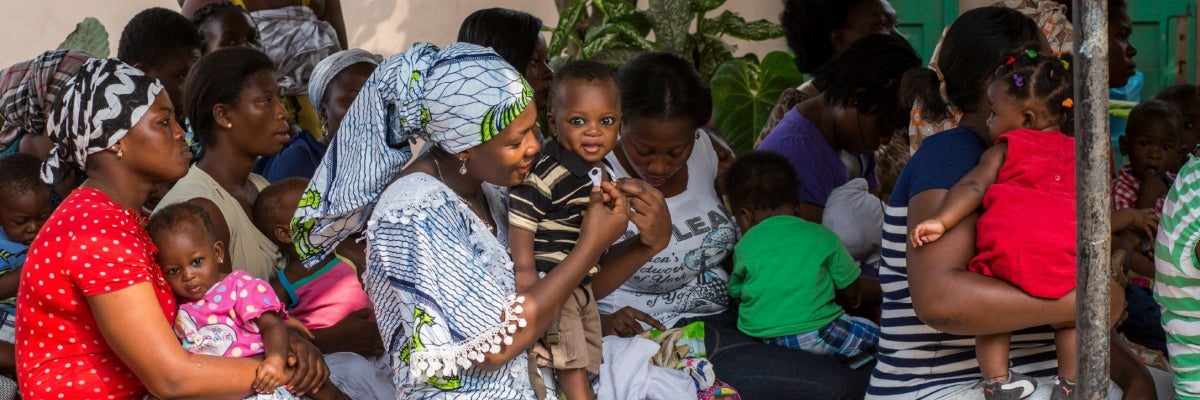 © Bill & Melinda Gates Foundation/Jiro Ose
© Bill & Melinda Gates Foundation/Jiro Ose
Just a decade ago, the idea that everyone, everywhere, could have access to health care at a cost they can afford felt like a distant dream. Now, however, the world has set a new, exciting and ambitious goal for health – ensure healthy lives and promote well-being for all at all ages – as part of the broader agenda for sustainable development. We now have an historic opportunity to transform aspiration into reality.
The world has made tremendous health gains in recent decades. People are living longer than ever before, fewer children are dying in the early years of life, and access to lifesaving medicines and vaccines has skyrocketed. Yet it’s clear that meeting the health and development challenges of the twenty-first century requires a new approach – investing in health systems that can meet people’s diverse health needs at every age and every stage of life.
Today, there’s growing recognition that strong primary health care is a cornerstone of sustainable development, and the key to building the future we all want and deserve. At recent global meetings on HIV/AIDS, noncommunicable diseases and tuberculosis, scientists, advocates and world leaders have recognized that stemming the tide on these epidemics begins with strong health systems that can address people’s complex and varied health needs side by side. And in October 2018, policymakers, advocates, patients and partners convened in Astana, Kazakhstan to commit to strong primary health care as the foundation and future of health for all.
What is Strong Primary Health Care?
Primary health care forms the foundation of health systems, ensuring all people stay healthy and get care when they need it.
While primary health care looks different in every country, there are common building blocks that form the foundation of success. A strong primary health care system has facilities located in the right places in their communities, where people can go to access the primary care services they need when they need them; health care providers who are trained, empowered and incentivized to deliver quality primary care; and systems and policies that ensure essential medicines, vaccines and diagnostics are available and of high quality. Adequate funding underpins the success of the entire system and is essential to ensure countries can provide a basic package of primary care services for everyone, at a cost people can afford.
When primary health care works, people and families are connected with trusted health workers and supportive systems throughout their lives, and have access to comprehensive services ranging from family planning and routine immunizations to treatment of illness and management of chronic conditions.
Strong primary health care is the key to achieving health for all.
Strong primary health care:
- Addresses more than 80 percent of people’s common health needs throughout their lives.
- Saves and improves lives, with fewer children dying before their fifth birthday, and more people living longer, healthier lives.
- Is efficient, detecting, preventing and managing people’s illnesses before they become expensive to treat.
- Is fair and equitable, providing all people with access to essential health services in their communities.
- Protects global health security, helping communities detect and stop local outbreaks before they become global epidemics.
Strong primary health care also requires quality, easy-to-understand data to pinpoint strengths and weaknesses, and measure and monitor improvements. PHCPI worked to measure what matters – helping to shine a light on what’s working and what’s not, and ensuring decision makers have the data they need to strengthen primary care systems on the way to achieving health for all.
